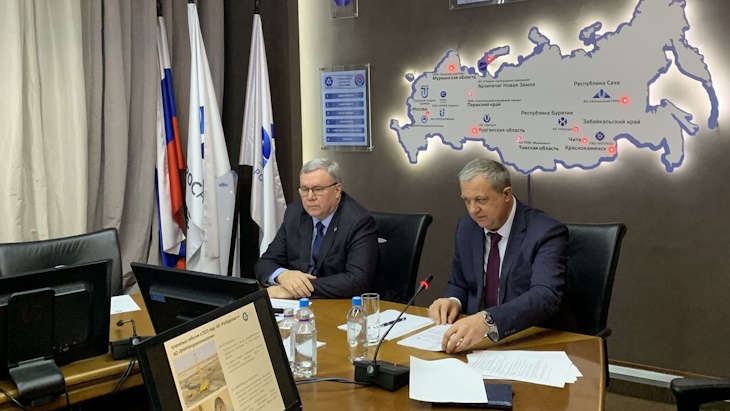
At the Priargunskoye Industrial Mining and Chemical Union (PIMCU) - the uranium production centre in the Transbaikal/Chita region - heap leaching was used to increase the processing of low-grade ores, while the commissioning of a new treatment block at Mine No 8 supported stable, uninterrupted operation and maintaining production volumes, the company said.
Meanwhile, development of Mine No 6, which will access the the Argunskoye and Zherlovoye deposits, is under way in accordance with the construction programme, the company said. All key works for 2023 were completed on time, and the first uranium from the mine is expected to be produced in 2028. Mine 6 "will become the main source of uranium production for the next 40-50 years", as further ore bodies are developed. These "will increase uranium production and guarantee the raw material independence of the Russian nuclear power industry, even taking into account the decrease in the resource base of mines No 1 and 8", Rosatom said in its Atommedia Online publication.
JSC Khiagda, the subsidiary responsible for in-situ leach (ISL) operations in the Republic of Buryatia, has started the construction of a local sorption unit at the Dybrynskoye orefield and commissioned the first stage of the Kolichkanskoye field in December.
In the Trans-Ural/Kurgan region, JSC Dalur continued to develop the Khokhlovskoye field during 2023, with Atomredmeztoloto (ARMZ) exploration subsidiary Rusburmash drilling 240 wells during the year. The central and western deposits were also developed, and work has been completed on the construction of a pilot site at the Dobrovolnoye deposit in the Kurgan Region.
"PIMCU, Khiagda and Dalur continue to expand the uranium base of the Russian nuclear power industry," said ARMZ First Deputy Director General and Executive Director Viktor Svyatetsky. "For us, it is important not only to strictly implement the plans for the existing supplies of uranium for the production of nuclear fuel. We are also working for the future, since the mining division of Rosatom is solving the most important task - ensuring the country's raw material independence with strategic metals."
ARMZ is the management company of Rosatom's mining division. Its enterprises carry out the full range of uranium mining operations from geological exploration, pilot and design work to reclamation and decommissioning of production facilities. More than 60% of Russian uranium is mined using ISL. Rosatom's mining division is also actively developing its non-uranium businesses, and is implementing projects for the extraction of gold, lithium, rare and rare-earth metals.
According to World Nuclear Association information, Russia produced 2508 tU in 2022, making it the sixth largest producer of uranium in the world, while Russian reactor requirements for 2023 were estimated at 6284 tU.